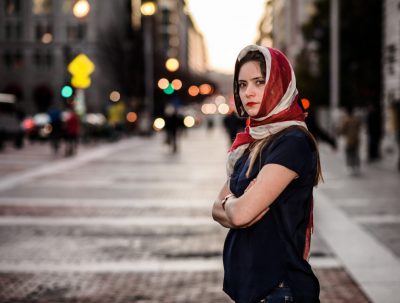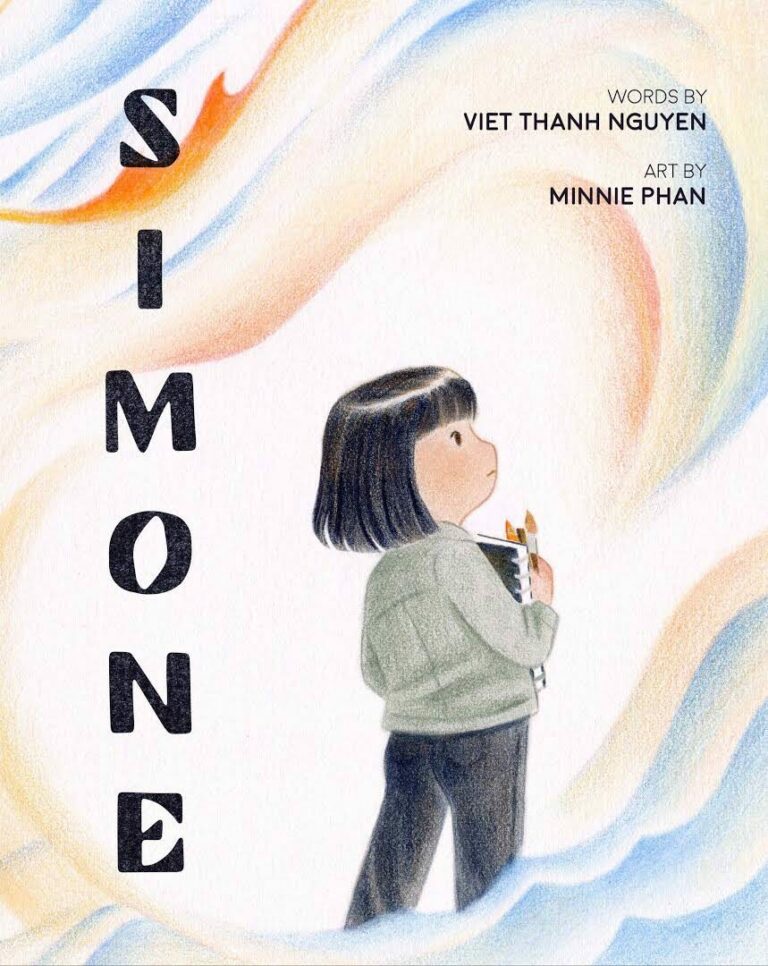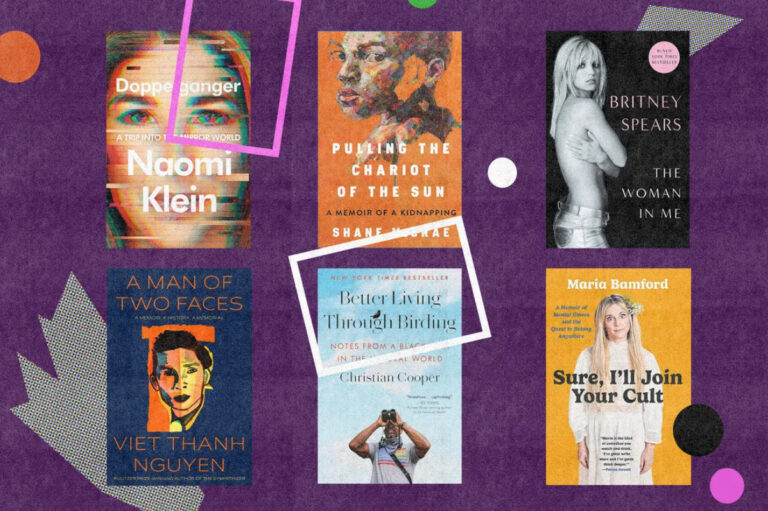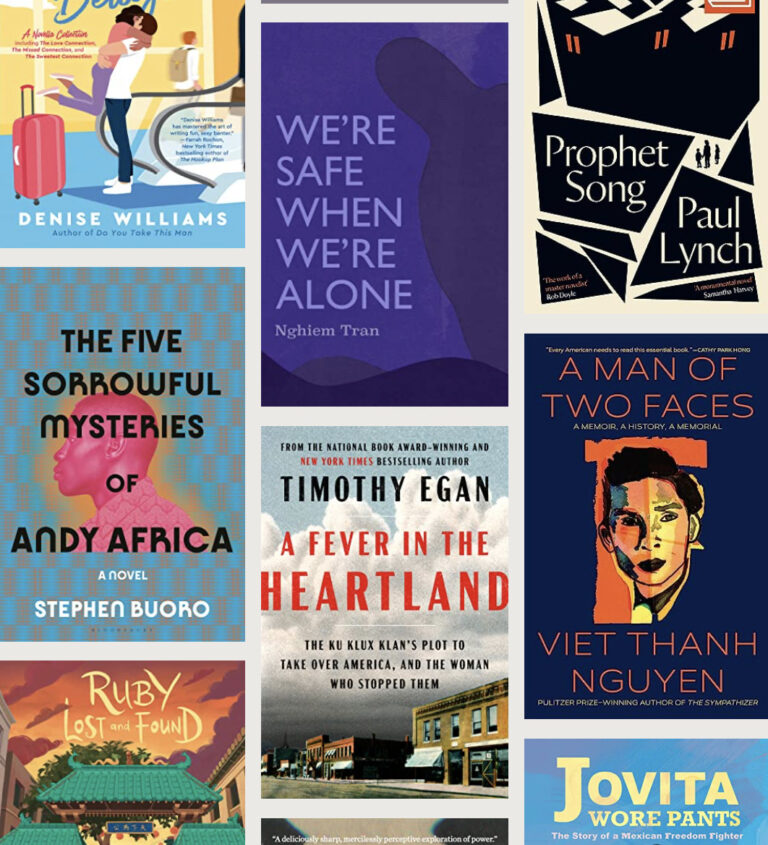Eric Bennett of Public Books writes about Viet Nguyen’s The Refugees, alongside musings on other authors and their work(s), including Ottessa Moshfegh, Chimamanda Ngozi Adichie, Junot Díaz, Roxane Gay, and Chanelle Benz.

What makes American life meaningful? Apple products? Cat videos? Torrential pornography? The prospect of a lavish retirement? The senior prom? Forestalling your plunge into poverty? Prescription narcotics? Not so long ago the answers might have included: God, manifest destiny, gentleman farming, transmuting hardship into blues and jazz, abstract expressionism, white picket fences, the great American novel, T. S. Eliot’s broken heart, being a Communist, being an anarchist, not being Soviet, viable entrepreneurialism, plausible feminism, NASA, loving nature, transmuting privilege into psychedelic rock, recognizing ourselves in those who are different from us, and, in general, striving together to form a more perfect union.
The target has always been moving and manifold and inextricable from bad shit. The ends change because the founders designed a means, not an end. What can liberalism do but shrug off the ultimate questions? We inherit rules and, at best, mores. But who, in the meantime, doesn’t like ultimate answers? Since November 2016, the United States has beheld a set of ultimate answers, told as just-so stories, to make the blood run cold.
The new president, having long since skunked mores, delivers bracing fables of doom. Trump’s storytelling appalls even some of us white men from the rustbelt who are ostensibly served by it. Yet in a certain sense he’s done nothing more than deliver what voters of every stripe have come to expect. For all their differences, Obama and Trump both rose to power as storytellers, broadcasting mythologies onto the ephemeral wall of contemporary reality. Obama drew from Abraham Lincoln and Reinhold Niebuhr to do it; Trump, from Nielsen, Breitbart, and the kooky eddies of the internet. Obama gave us the arc of history bending toward justice; Trump, a “nasty woman” and some “rusted-out factories scattered like tombstones across the landscape of our nation.”
If it feels like a category error to compare oval-office storytelling with literary storytelling, so much the worse for literary storytellers. Writers, like presidents, expand their lungs to the fullest in the atmosphere of ultimate questions. They owe us an account of the foundations of conviction that underlie our choices. If anything heralds transcendence any longer, writers should help say what. It falls to them to elevate, nourish, make visible, caress, fortify, and render with love what the White House would shoot, deport, mock, silence, or gleefully immerse in the white noise of anti-factuality.
Did Ottessa Moshfegh vote for Trump? If so, I’ll eat my hat. But, like Trump’s oratory, her new story collection, Homesick for Another World, aestheticizes abjection. The characters will shock you with their cruelty, and that shock is proffered as a treat. Here’s a lonely Chinese man, looking for love, anonymously texting the woman he thinks he adores: “How does it feel to be a middle-aged divorcee living with your retarded nephew and working in a computer café? Is it everything you ever dreamed?” Not hard to imagine Trump asking this of a contestant on The Apprentice.
In Moshfegh’s world, as in Trump’s, such seduction lines work. People like to be abused. Moshfegh, of course, makes use of complete sentences, fine words, and complex grammar, as the president never will. She describes the proprietor of a yard sale as “a woman with a hundred years of suffering behind her—no love, no transformations, no joy, just junk food and bad television, ugly, mean-spirited men creaking in and out of stuffy rooms to take advantage of her womb and impassive heft.” A bleak perpetuity haunts the scene. “One of her obese offspring would soon overtake her throne … and preside over the family’s abject state of existence.” How can this be? “You’d think that, sitting there, oozing slowly toward death with every breath, they’d all go out of their minds. But no—they were too dumb for insanity.”
Through the eyes of tweaked narrators, Moshfegh conjures a debased population and degraded landscape. Here there’s no “scenic hike or museum to visit, no guided tour, no historic monument … no gallery of naive art, no antique shop, no bookstore, no fancy bakery,” only gas station coffee and two-dollar movies. “And sometimes I visited the deluxe shopping center on Route 4, where the fattest people on Earth could be found buzzing around in electronic wheelchairs, trailing huge carts full of hamburger meat and cake mix and jugs of vegetable oil and pillow-size bags of chips.” Those tombstone factories, though unmentioned, loom just up the road.
Pimples abound. A Chinese prostitute has a “face covered in hard little pimples.” A guy in Malibu comes clean: “It was true: I had pimples.” A volunteer working with “retarded” people describes “the runt of the litter—small shouldered, pale, with blackheads and pimples around the corners of his mouth and nostrils.” A music student’s face “was scabbed from tearing his pimples open and squeezing the pus out with dirty chewed-up fingernails.” A narcissist describes his thuggish brother’s “terrible cystic acne,” the “big red boils of pus that he squished mindlessly in front of the television.” A sleazy director asks an aspiring actor: “You always got zits up there between your eyebrows?” Genitals also abound. You can make your own montage.
Disgust lives in moist proximity to titillation. It is this dimension of modernism, the dimension that once upon a time reactionaries savored a hatred for, that stands behind Moshfegh’s achievement. Gustave Courbet painted The Origin of the World in 1866, and its wry frankness, its outrageous comic ambiguity, its yawning bang, is Moshfegh’s kind of thing. It is a modernist axiom—the art that feels most alive is grounded in shock—that links Moshfegh to her predecessors; it is also reflective, perhaps, of her training. Take James Joyce. Ulysses teaches a reader a great deal about the sensory, linguistic, and historical contours of Dublin in 1904 and virtually nothing about how to act or be—unless, perhaps, how not to be squeamish or prudish. Ulysses appeared in 1922, making it ancient history to a literary scene, like ours, committed to tomorrow. Yet even today Joyce casts determinative light across the galaxy of American creative writing programs. From him to Hemingway, to the classrooms of the 1950s that enshrined the latter, to the seminars that produced the American minimalist fiction of the 1970s and 1980s, runs the genealogy at the far end of which Moshfegh assumes her place.
I feel the same uneasy tenderness toward the vulnerable bodies of Moshfegh’s world as toward Joyce’s Leopold Bloom in bathtub or outhouse. “The freckles on my thighs, once adorable marks of health and frivolity,” a Moshfegh heroine reports, “were now like spots of dirt or little bugs I kept trying to scrape away with my fingernail.” “Most people have had anal sex,” an alcoholic high school teacher tells her students. “Don’t look so surprised.” “She was one of two girlfriends I had,” another narrator recalls. “We talked and talked. I told her you couldn’t get fat from being ejaculated into.”
Moshfegh cherishes and flatters the very disgust that spurs outrage in the hearts of fascists. One gets the sense that she has surveyed this world and locates grace only here, in the generous willingness not to look away. We catch sight of ourselves—of the persisting vehemence and comic triviality of our dreams—when standing before zits and penises. “It wasn’t painful, nor was it terrifying,” a satisfied character gloats, “but it was disgusting—just as I’d always hoped it to be.”
Is this the best we can do from now on? Artistically, maybe so. Homesick for Another World is the smartest, the most unsettling, the most transporting collection discussed in this review. It is also the one I’d burn first if you charged me with planning a better world.
Viet Thanh Nguyen’s The Refugees, meanwhile, I’d burn last. Not that this story collection conjures an America of easy, happy lives. But it describes the nation that existed from the 1970s until last November, which, in retrospect, looks almost utopian.
A Vietnamese immigrant, prospering as a ghostwriter, comes to grips with the misery of her brother, who died on a boat as the family fled the war. A male refugee in the mid-1970s is sponsored by a gay couple in San Francisco and by turns astonished and seduced by their way of life. A seamstress in Los Angeles tries to blackmail shopkeepers into supporting Communist elements back home after the war has ended. An elderly immigrant discovers in her husband’s dementia evidence of infidelities long past. The aspirations of Mexicans in LA jostle against the aspiration of the Vietnamese, revealing just how various the fears of immigrants can be. In every instance meaning arises from sources more complex and sustaining than visceral reactions.
Ethics, quaint as a dirndl, might even be in the air. A refugee newly arrived is asked how he envisions his future and is flummoxed. His job at a liquor store constitutes a far happier fate than what he would face in Vietnam. “The idea of saying he wanted to be a doctor or a lawyer or a policeman was utterly ludicrous.” So the man simply says he wishes to be “good.” Nguyen has the bravery, the talent, and the cultural position to chronicle, among other things, dreams of goodness.
Did Nguyen intend The Refugees as a swan song for an America that doesn’t terrorize newcomers? It reads that way, but the timing doesn’t square. I assume he was clearing out the old files, the stories composed before a Pulitzer Prize transformed his career. The collection feels like yesterday. But Nguyen’s recent political statements make clear that he will have important new fiction to write about not being white these days.
Does the fate of the republic hang on those who have lived furthest from its center and benefitted least from its largesse? It’s the feeling I got as I read The Refugees. And the idea is borne out by The Best American Short Stories 2016, edited by Junot Díaz—which, at first, hardly seems American at all.
Readers land in the Nigeria of Chimamanda Ngozi Adichie, the Ghana of Mohammed Naseehu Ali, and the Bangladesh of Tahmima Anam before finding themselves on an island off the coast of New Hampshire as rendered by Andrea Barrett. And even this first glimpse of North America, four stories in, arrives through the perspective of women who love marine biology and each other—on the far margins of 2017’s worst norms. The tour of the margins continues apace. Yalitza Ferreras presents a heroine from the Dominican Republic who grows up in New York and loves geology and dates tragically outside her family’s wishes. Lisa Ko, in “Pat + Sam,” chronicles unlucky Chinese American courtship in the 1970s. In short, the collection diversifies the national portrait. If you’re looking for white men being white men, you’ll have to content yourself with Smith Henderson’s road-tripping outlaws in “Treasure State” or Ben Marcus’s chilling portrait of fatherhood in “Cold Little Bird.” Or, alternatively, turn on the news.
Short fiction has a long history as the genre of choice for a heterogeneous democracy. As early as 1892 Colonel T. W. Higginson likened regionalist tales to “the portable kodak.” Both enabled an unprecedented documentation of diversity. “All the varied elements of our society are being rapidly sought out and exhibited.”1 His contemporary, Bret Harte, celebrated short fiction’s “treatment of characteristic American life, with absolute knowledge of its peculiarities and sympathy with its methods, with no fastidious ignoring of its national expression, or the inchoate poetry that may be found hidden even in its slang.”2 A generation later, Edward J. O’Brien, who edited the original Best American Series from its founding in 1915 until his death in 1941, took a similarly pluralistic view.
Díaz inherits this tradition and writes it large. Reading the collection feels politically cathartic. Yet it also raises the question of what, beyond pluralism, a national literature should attain. The danger of short stories standing alone is that even excellent ones, which these are, can hardly do the complex work of rendering a community—its hungers and conflicts—as Nguyen, for instance, does in The Refugees. A story permits barely time enough to enter a single life, let alone a web of lives. Best American risks simulating the diversified narcissism of a season of Survivor. The members of that rainbow cast are hardly looking out for each other.
As David Harvey suggested long ago, diversity can serve the merciless international movement of capital as well as the aims of social justice.3 The most righteous stories in Best American—Anam’s account of Bangladeshi garment workers comes to mind—embody the despairing double existence of any progressive soul living under a neoliberal order. A powerful critique of the forces that militate against meaningful community reaches the market according to a logic that is complicit in the destruction of just such community. Neoliberalism preaches bootstraps and privatizes boots. Authors thrive as atoms.
Díaz and the series editor, Heidi Pitlor, can hardly be blamed for the shortcomings of anthologies or for the insidious cooptation of diversity by capital. Díaz, in other contexts second to none in the potency of his critical indignation, gives the System hell.4 But the editors do not improve matters by indulging the autobiographical fetish that 21st-century publishing is, without fail, gripped by. Lengthy author bios conclude the collection, along with how-I-came-to-write-it pieces provided by the authors. The latter diminish the power of the fiction, translating it from art to ethnography or furtive nonfiction. And in their introductions, the editors wax personal. Pitlor tells us about being a mom, Díaz about being an MFA student. So what? Shouldn’t an editor capture a moment in theory as well as practice, and contravene our limited and personal points of views with a committed and historicized one? Díaz has the erudition, genius, and platform to do that. Why won’t he?
The most popular answer to my opening question—what gives American life meaning—is probably celebrity: having it, aspiring to it, acting like you have it even when you don’t, and being framed as if you have it long before you do. Celebrity, like liberalism, is, in itself, empty. But 2016 proved that celebrity, devoid of wisdom, experience, or character, qualifies a fellow to be president. Future civilizations probably won’t be surprised that our politics devolved to pageants of tabloid fame. But our literature? I vote to keep great writers free of any taint of that.
A powerful virtue of Roxane Gay’s new book, the collection of stories Difficult Women, is that it’s exultantly fictional—could be mistaken by nobody for thinly veiled life writing. Many of the stories are overtly fantastic. There’s a wife made of glass. There’s a woman who sees water on the ceiling wherever she lies. A Second Civil War reconfigures the nation. A North Country miner flies into the heavens and consumes the sun.
Even the nonfantastic stories become fantastic in context. Extremity amplifies extremity. Sisters, as little girls, are kidnapped and raped for weeks. A mother witnesses the death of her toddler son when a car hits him in a parking lot. A woman is gang-raped by her boyfriend and his friends. An affluent white strip-club patron rapes a black dancer who is hoping to work for the CIA. A naughty priest has wild sex. Twins sneak and swap lovers—again and again! Like daytime TV talk shows, the episodes feel happenstantially oversaturated, making freak catastrophes the new normal.
What does the pattern signify? This isn’t the real world, so is it an allegory? An abundance of stories that aren’t extreme—mostly portraits of broken hearts and hardscrabble lives in the Upper Peninsula of Michigan—make it all the harder to say. If anything unifies the collection, it’s rough sex, which recurs in almost every story. Renditions of violent pleasure stand in uneasy proximity to the accounts of rape. “I tell him to hate me more,” one narrator says. “He does, and a pleasant soreness begins spreading from between my thighs and my head is slamming against the headboard.” Like Moshfegh’s cast, Gay’s characters discover in abjection a repletion of feeling, a wholeness of being, that otherwise remains absent. “He clasped my throat and squeezed harder and harder, leaving his mark,” another narrator says. “I held his gaze. I waited for him to punish me and when he did, it was perfect relief.” The stories appear to dramatize a central thesis of Gay’s essays, collected in Bad Feminist, which espouse a commitment to emotional and categorical messiness. “I am just trying—trying to support what I believe in, trying to do some good in this world, trying to make some noise with my writing while also being myself.”5
Would Gay remain herself if that were not her central intention, as it is in Bad Feminist? Difficult Women answers “yes”—and it’s the better book. Gay labors in the capacious terrain of the fictional with freedom and intelligence not afforded by the prison of the I. Of course, the publisher would have a different take. Bad Feminist put Gay on the map. The institutions that allow an author to exist demand that she parade personality as if personality were sufficient for a good life. This belief prevails even, apparently, among those who have suffered most from the personality-effacing consequences of that belief.
As writers in 2017, our primary resource, according to the market, is the authentic self. Since the 1930s, the self has been just about the sole American literary resource. The returns on individuality can seem great, if for no other reason than that the return on alternative visions are even more piddling. And, for writers from the cultural margins, the historically unprecedented opportunity to make their voices heard deserves to be embraced as a necessary victory. But it should by no means be embraced as a sufficient one.
Who is Chanelle Benz? My mind forms no picture. Is she an orphaned teenage girl trying to survive in drag amid bank robbers and mob justice in the American West of the late 19th century? Is she the heroine of an apocryphal 1829 Gothic romance? Or a young Christian missionary from this century who gets brutalized in Africa, rescued by Swedish mercenaries, and transformed into a secret agent? Or is Benz one of the other half dozen historically disparate protagonists who, in period-specific diction, populate The Man Who Shot My Eye Out Is Dead? Probably she’s just the woman of British-Antiguan descent described in the little bio on the back cover, but the photo is not much to judge by. Most relevant might be the BFA in acting she holds from Boston University. Because so much more than a locus of identity Benz is a medium for voices originating far from herself, channeled through a curious intellect. Frankly I hope never to learn more. I dream of her and Elena Ferrante eloping to Manitoba.
Benz’s odd collection belongs to the project we should all be rooting for. Whatever makes American life meaningful in the months and years ahead will be more than a report on what is. It will adumbrate those things that surpass and transcend us in time and language. The future of planet earth, if it has one, lies in forms of collectivity not yet imagined. To remain committed as a writer to mid-20th-century individualism is to exacerbate the problem you think your individualism is helping to solve.
- Colonel T. W. Higginson, “The Local Short-story,” The Independent, March 11, 1892, quoted in Brander Matthews, The Philosophy of the Short-story (Longmans, Green, & Co., 1901), p. 55. ↩
- Bret Harte, “Rise of the Short-story,” Cornhill Magazine, July 1899, quoted in Matthews, p. 71. ↩
- See David Harvey, A Brief History of Neoliberalism (Oxford University Press, 2005), chapter 2. ↩
- See, e.g., Junot Díaz, “MFA vs. POC,” Page-Turner (blog), New Yorker, April 30, 2014. ↩
- Roxane Gay, Bad Feminist (Harper Perennial, 2014), p. xi. ↩


